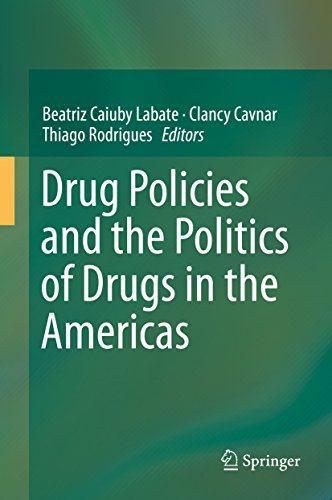
Drug Policy in Guatemala: Constraints and Opportunities
Book chapter in Drug Policies and the Politics of Drugs in the Americas, pp 53-70.
Authors: Amanda Feilding and Juan Fernández Ochoa
Editors: Beatriz Caiuby Labate, Clancy Cavnar and Thiago Rodrigues
Year: 2016
Abstract
In the last few years, Guatemala has emerged as a leading voice in the drug policy reform debate. This chapter sheds light on the roots of this shift in the national discourse and assesses its depth and potential implications. Our research will be presented in three parts. Part one explores the origins of Guatemala’s drug problem, its transformation into a pivotal transit country for cocaine trafficking at the end of the 1980s and the destructive impact of the externally driven counter-narcotic strategy. The second part analyzes the recent government-led rebuttal of the “War on Drugs” and its implications, both nationally and internationally. Finally, the third part evaluates the reach of this rhetorical shift, as well as the difficulties of its translation into effective policies at home. The study concludes by characterizing the country’s efforts to regain ownership over its own drug policy.
You can purchase the whole book Drug Policies and the Politics of Drugs in the Americas from Amazon, or a separate chapter from Springer.
Podcast
- All
Links
- All
Support
- All
BIPRP
- All
Science Talk
- All
Amanda's Talks
- All
- Video Talk
- Featured
- 2016 Onwards
- 2011-2015
- 2010 and Earlier
- Science Talk
- Policy Talk
One-pager
- All
Music
- All
Amanda Feilding
- All
Events
- All
Highlights
- All
Psilocybin for Depression
- All
Current
- All
Category
- All
- Science
- Policy
- Culture
Substance/Method
- All
- Opiates
- Novel Psychoactive Substances
- Meditation
- Trepanation
- LSD
- Psilocybin
- Cannabis/cannabinoids
- Ayahuasca/DMT
- Coca/Cocaine
- MDMA
Collaboration
- All
- Beckley/Brazil Research Programme
- Beckley/Maastricht Research Programme
- Exeter University
- ICEERS
- Beckley/Sant Pau Research Programme
- University College London
- New York University
- Cardiff University
- Madrid Computense University
- Ethnobotanicals Research Programme
- Freiburg University
- Medical Office for Psychiatry and Psychotherapy, Solothurn
- Beckley/Sechenov Institute Research programme
- Hannover Medical School
- Beckley/Imperial Research Programme
- King's College London
- Johns Hopkins University
Clinical Application
- All
- Depression
- Addictions
- Anxiety
- Psychosis
- PTSD
- Cancer
- Cluster Headaches
Policy Focus
- All
- Policy Reports
- Advisory Work
- Seminar Series
- Advocacy/Campaigns
Type of publication
- All
- Original research
- Report
- Review
- Opinion/Correspondence
- Book
- Book chapter
- Conference abstract
- Petition/campaign
Search type
